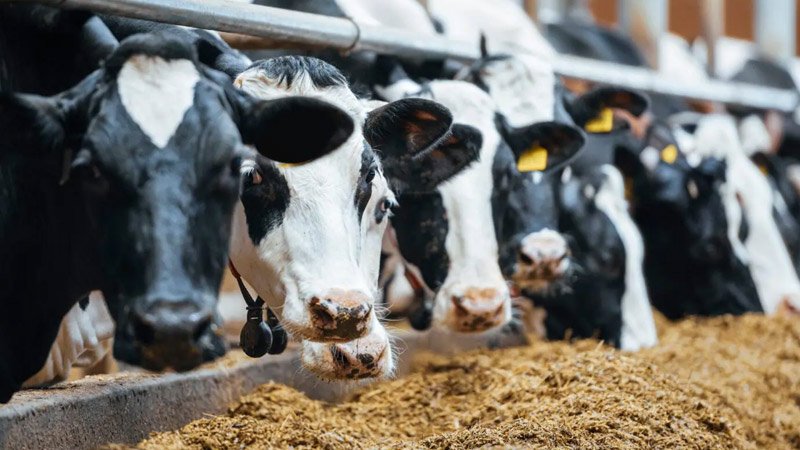
The Food Institute
The Biden administration announced on Friday a commitment of nearly $200 million to combat the spread of avian flu among dairy cows, marking the latest effort to curb outbreaks that have raised concerns about potential human infections with the H5N1 virus, told to the VOA News
Detection of the virus among dairy cattle in nine states since late March has prompted heightened vigilance, with scientists suggesting a broader impact based on findings from the U.S. Food and Drug Administration, which revealed H5N1 particles in roughly 20% of retail milk samples, according to VOA News.
The U.S. Department of Agriculture (USDA) disclosed plans to allocate $98 million to extend support to dairy farms, offering up to $28,000 per farm for containment measures aimed at curbing the transmission of the virus among animals and humans, including testing of milk and animals.
“USDA is actively engaged in efforts to monitor and eradicate H5N1 within the dairy cattle population,” stated Agriculture Secretary Tom Vilsack during a press briefing.
Furthermore, the Department of Health and Human Services (HHS) outlined its commitment of $101 million through the FDA and the U.S. Centers for Disease Control and Prevention (CDC) to safeguard public health and the integrity of the nation’s food supply.
“While the current outbreak presents a low risk to public health, we remain vigilant,” remarked HHS Secretary Xavier Becerra during the briefing.
Funds allocated include $34 million for testing initiatives and support to public health laboratories through the CDC, $8 million designated for vaccine development, and an additional $3 million for wastewater surveillance.
Although health authorities have stressed a low public health risk, ongoing monitoring is essential to detect any mutations that could enhance human-to-human transmission of the virus.
The FDA’s share of the funding, amounting to $8 million, will be directed towards ensuring the safety of the commercial milk supply.
“At present, there are no concerns regarding the safety of the commercial milk or beef supply,” affirmed Vilsack during the briefing, underscoring that while raw milk consumption should be avoided, pasteurization effectively neutralizes the virus.
A single case of a dairy farm worker in Texas testing positive for the virus, accompanied by symptoms of conjunctivitis, has highlighted the importance of preventative measures.
In response, the USDA implemented a requirement on April 29 for lactating dairy cows to test negative before being transported across state lines, resulting in 905 tests conducted by USDA laboratories in the initial week, with 112 yielding presumptive positive results, as per an agency spokesperson.






